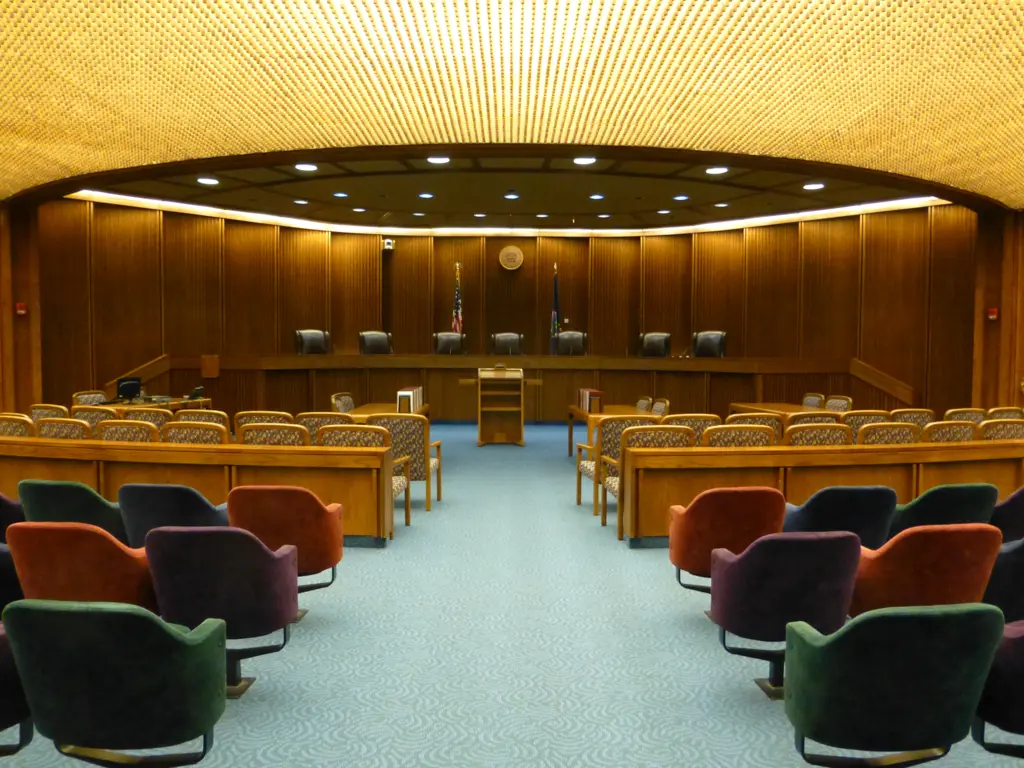
Need a restraining order in Kansas? Learn how to file Protection from Abuse orders, eligibility requirements, and get expert Kansas City legal help. Free guide with step-by-step filing process.
When domestic violence, stalking, or harassment threatens your safety in Kansas, obtaining a restraining order can provide crucial legal protection. While Kansas doesn't use the term "restraining order" in its statutes, the state offers comprehensive protection through Protection from Abuse (PFA) orders and Protection from Stalking, Sexual Assault, or Human Trafficking orders. Understanding your options and the legal process can make the difference between continued danger and the safety you deserve.
In Kansas, what many people call a "restraining order" is legally known as a Protection from Abuse order or a Protection from Stalking order. These court-issued orders are designed to legally prohibit someone from contacting, threatening, or coming near you. Unlike criminal charges, protection orders are civil matters that focus on preventing future harm rather than punishing past behavior.
Kansas law recognizes two primary types of protection orders:
Protection from Abuse (PFA) Orders are available when you have a domestic relationship with the abuser—such as a current or former spouse, dating partner, or someone you share a child with. These orders address physical abuse or credible threats of physical harm.
Protection from Stalking, Sexual Assault, or Human Trafficking Orders apply to situations involving stalking behaviors, sexual assault, or human trafficking, regardless of your relationship with the perpetrator.
To obtain a Protection from Abuse order in Kansas, you must meet specific criteria:
For a Protection from Stalking order, the requirements include:
Kansas law provides three distinct levels of protection orders, each serving different urgency levels:
When immediate danger exists and courts are closed, law enforcement officers can request an emergency protection order from an on-call district court judge. These orders provide immediate protection but expire at 5 PM on the next business day the courthouse is open.
Filed directly with the district court, temporary orders can be granted without the abuser's knowledge or presence if a judge determines you face immediate danger. These orders remain in effect until your full hearing, typically scheduled within 21 days.
Issued only after a full court hearing where both parties can present evidence, final protection orders can last up to one year. In certain circumstances involving repeat violations or severe abuse, these orders may be extended for additional years or even for the abuser's lifetime.
Kansas offers multiple convenient options for filing protection orders:
In-Person Filing: Visit any district court clerk's office in Kansas to file your petition. Court staff can provide forms and basic procedural information, though they cannot offer legal advice.
Online Filing: The Kansas Protection Order Portal (KSPOP) at www.kspop.org allows you to complete and submit protection order applications from any computer or mobile device. This court-funded portal is free to use and automatically forwards your petition to the appropriate district court clerk.
Step 1: Gather Required InformationBefore filing, collect essential details including the abuser's full name, physical address for service, and specific dates and descriptions of abusive incidents.
Step 2: Complete the PetitionWhether filing online or in person, you'll need to complete a detailed petition describing the abuse and explaining why you need protection. Be specific about incidents, dates, and the type of protection you're requesting.
Step 3: Judicial ReviewA judge will review your petition, often on the same day you file. If you're seeking a temporary order due to immediate danger, you may need to meet with the judge to explain the urgency of your situation.
Step 4: Service of ProcessIf granted, your temporary order and hearing notice must be served on the abuser by law enforcement. Never attempt to serve these documents yourself, as this could create additional danger.
Step 5: Final HearingAttend your scheduled hearing to request a final protection order. If you don't appear, your temporary order will expire. If the abuser doesn't appear, the judge may issue a default order granting your request.
Kansas protection orders can include various forms of relief tailored to your specific situation:
The court can order the abuser to stop all forms of contact, including in-person encounters, phone calls, text messages, emails, and social media communications.
If you shared a home with the abuser, the court can order them to leave and stay away from the residence, regardless of whose name is on the lease or deed (with limited exceptions).
Protection orders can extend to your workplace, your children's schools, and other locations you regularly frequent.
When children are involved, protection orders can include temporary custody arrangements and child support provisions.
The court can order the return of personal property, including keys, identification documents, and other essential items.
One significant advantage of Kansas protection orders is that there are no filing fees required. This ensures that financial constraints don't prevent abuse victims from seeking legal protection.
While there's no cost to file the protection order itself, you may choose to hire an attorney to assist with your case, especially if the situation is complex or the abuser has legal representation.
If you're in the Kansas City metro area, Johnson County offers specialized victim assistance services:
Johnson County Victim Assistance UnitPhone: (913) 715-3004Hours: Monday through Friday, 8:00 AM to 5:00 PM
Johnson County Civil Clerk's OfficePhone: (913) 715-3400
District Court Help CenterPhone: (913) 715-3385Email: DCC-Helpcenter@jocogov.orgHours: 8:00 AM to 5:00 PM
While protection orders provide important legal safeguards, they're most effective when combined with comprehensive safety planning. Consider these essential safety measures:
Keep important documents, medications, and emergency supplies readily accessible. Identify safe locations where you can go if you need to leave quickly.
Develop code words with trusted friends or family members who can call for help. Consider how your phone, computer, and social media use might be monitored.
Safehome Johnson County: (913) 262-2868 or 1-800-799-SAFE provides 24-hour crisis support, emergency shelter, and advocacy services.
Kansas Legal Services: (913) 621-0200 offers legal assistance and attorney referrals for low-income individuals.
Protection orders are only effective when properly enforced. If the abuser violates any terms of your protection order:
Violating a protection order is a criminal offense in Kansas, punishable by fines and imprisonment.
While you can file for a protection order without an attorney, legal representation can be invaluable, especially in complex situations. An experienced Kansas family law attorney can:
Seeking a protection order in Kansas is an important step toward reclaiming your safety and peace of mind. Whether you're dealing with domestic violence, stalking, or other threatening behavior, Kansas law provides multiple avenues for protection.
Remember that every situation is unique, and what works for one person may not be appropriate for another. Consider consulting with both victim advocates and experienced legal counsel to develop the most effective strategy for your specific circumstances.
If you're in immediate danger, don't wait—call 911 or contact your local law enforcement agency. For ongoing safety planning and legal guidance in the Kansas City area, experienced family law attorneys who understand Kansas protection order procedures can provide the personalized assistance you need to navigate this challenging time.
Your safety and the safety of your children must come first. Kansas protection orders provide powerful legal tools to help ensure that safety, but they work best when you have knowledgeable advocates on your side throughout the process.















